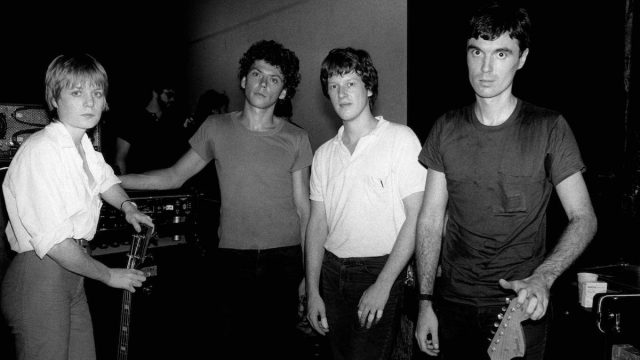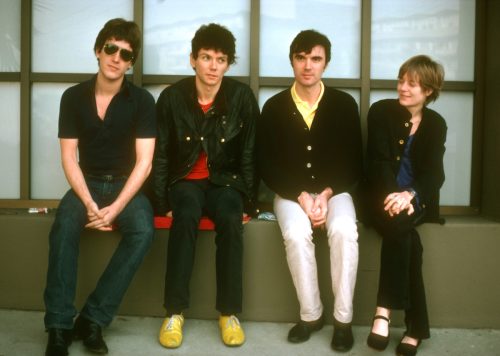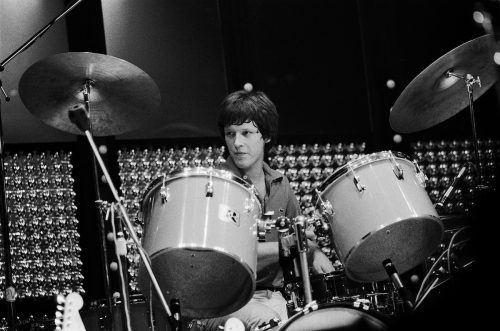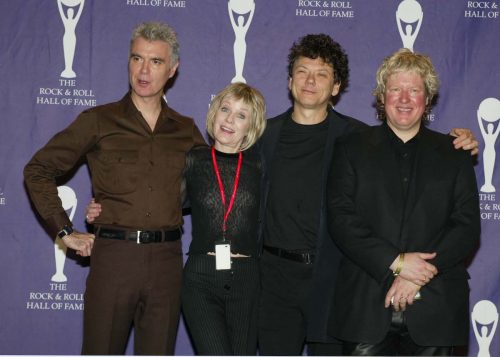David Byrne Reveals the Issues Behind “Ugly” Talking Heads Split

Across their 16 years together, the band Talking Heads became new wave icons for their hits, which included “Burning Down the House” and “Once in a Lifetime.” But, the group suddenly disbanded in 1991, three years after they released their final album, Naked. And not only did the news come as a surprise to fans, but it also reportedly came as a surprise to the members of the band who weren’t frontman David Byrne. He announced that the band was over during an interview, and his bandmates later claimed that this was the first official word they heard of Talking Heads being no more.
In a new interview with People ahead of the band’s first reunion in over 20 years, Byrne opened up about the breakup, which he called “ugly” and admitted “wasn’t handled well.” The 71-year-old musician also took on some responsibility for the drama, stating that he was “more of a little tyrant” when he was working with the band. Read on to find out more.
RELATED: 7 Hit ’80s Songs That Are Offensive by Today’s Standards.
Byrne called the breakup publicly before telling the rest of the band.

As reported by the Los Angeles Times, Byrne told the newspaper’s Sunday Calendar Pop Eye column in December 1991, “You could say (we’ve) broken up, or call it whatever you like.”
Australia’s The Age newspaper reported in 2005, that Byrne had “snapped in response to repeated questions” about the status of Talking Heads during that LA Times interview and later said that he was just trying to stop being asked the same thing.
His bandmates were “shocked.”

In addition to Byrne, Talking Heads consisted of bassist Tina Weymouth, drummer Chris Frantz, and keyboardist/guitarist Jerry Harrison. Weymouth and Frantz, who are married, spoke to the Los Angeles Times about the split in September 1992. Frantz said that they had seen “the handwriting on the wall a long time ago” due to Byrne’s solo projects, adding, “But we were shocked to find out about (Byrne’s departure) via the Los Angeles Times. As far as we’re concerned, the band never really broke up. David just decided to leave.”
Frantz continued, “We were never too pleased about the way David handled the situation. Communicating with other people has never been David’s forte, at least not on a personal level … We feel like David Byrne’s a very good artist. We’re just sorry that, you know, he didn’t really understand what he had, maybe. But then again, maybe he did, but he didn’t like it anymore.”
As reported by the Guardian, Frantz has claimed that Byrne took sole writing credits on songs that were created by the whole band. Another issue arose between the members when Bryne took legal action to try and stop the remaining members from using the name the Heads after he left the band, as reported by MTV.
Weymouth called Byrne “controlling.”

Weymouth called Byrne “a very controlling person” in a 1997 interview with Bass Player.
She explained, “I never minded what Chris would tell me, because even though he could make me mad as hell [laughs], we could communicate and work it out. But with David it’s all or nothing—total aggression or total meekness. So I always tried to act like a very gentle older sister with him. I could yell at Chris, but I could never yell at David. I often kept Chris from punching David, which I now regret because I think David could have used a good spanking [laughs].”
The bassist added, “But isn’t that just the way it is in bands? They’re so difficult to understand, yet once you all start playing music together, everything else drops away. It’s strange. I do still love David; I just wish he loved us.”
For more celebrity news delivered right to your inbox, sign up for our daily newsletter.
Byrne regrets how he handled things.

Byrne admitted to People that he was difficult when he was younger and didn’t handle his departure from the band well.
“As a younger person, I was not as pleasant to be around,” he said. “When I was working on some Talking Heads shows, I was more of a little tyrant. And then I learned to relax, and I also learned that collaborating with people, both sides get more if there’s a good relationship instead of me telling everybody what to do.”
Of the band’s split, he said, “I think [the end] wasn’t handled well. It was kind of ugly.”
The musician continued, “I have regrets on how that was handled. I don’t think I did it in the best way, but I think it was kind of inevitable that would happen anyway. We have a cordial relationship now. We’re sort of in touch, but we don’t hang out together.”
RELATED: See the Last Surviving Members of The Mamas & the Papas Now, at 78 and 80.
Talking Heads are set to reunite next month.

Talking Heads are scheduled to make an appearance in September at the Toronto International Film Festival. The band’s 1984 concert film, Stop Making Sense, is being rereleased. As reported by Variety, the group will participate in a Q&A about the film hosted by Spike Lee. This will be the first time the band has reunited since they were inducted into the Rock and Roll Hall of Fame in 2002.